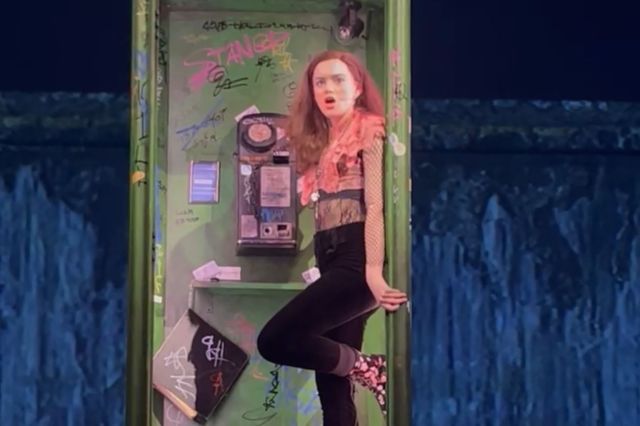Mark Valencia's top ten operas of 2017
The WhatsOnStage opera critic chooses his top ten operas of the past 12 months
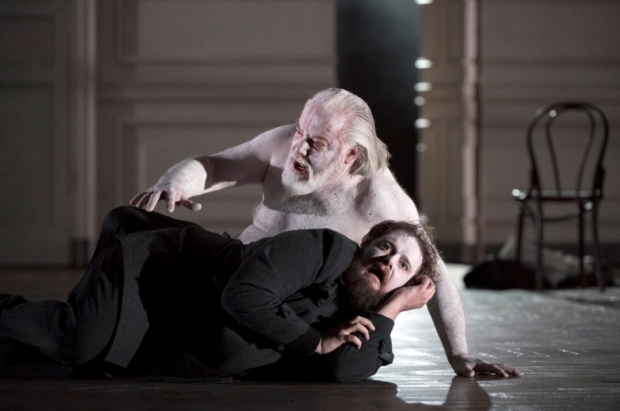
© Richard Hubert Smith
10. Hamlet (Glyndebourne)
Brett Dean’s new opera was brilliantly realised and overcame a patchy libretto (Act One is poorly structured) to triumph at the Glyndebourne Festival, on BBC4 and on tour. It’s probably been seen by more spectators in its first year than any new opera since Britten’s heyday. Pole-axing central performances by Allan Clayton (Hamlet) and Barbara Hannigan (Ophelia), with the equally impressive David Butt Philip and Jennifer France taking over for the autumn, made for gripping theatre in Neil Armfield’s palpitating staging.
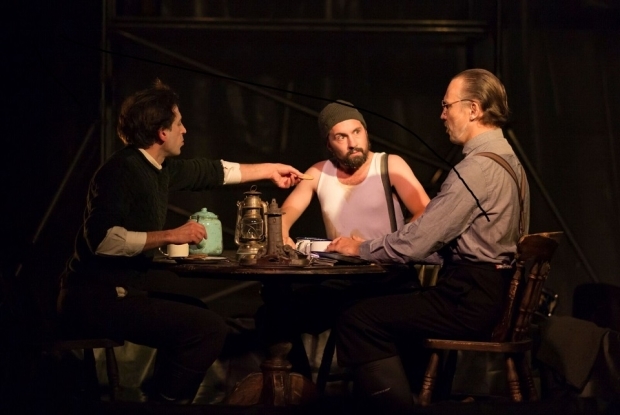
© Nick Rutter
9. The Lighthouse (Shadwell Opera at Hackney Showroom)
This taut, short opera by Peter Maxwell Davies offers a perfectly crafted evening of chills. Jack Furness‘s production for Shadwell Opera was rich and strange, beautifully conducted by Finnegan Downie Dear and sung for all its considerable worth by Paul Curievici, Owain Browne and Pauls Putnins. I think of it as a model opera because its insidious score is allied to a libretto (the composer’s own) that says just enough but leaves the heavy lifting to the music. Anyone who’s sceptical after this about opera’s ability to freeze the blood is made of sterner stuff than I.
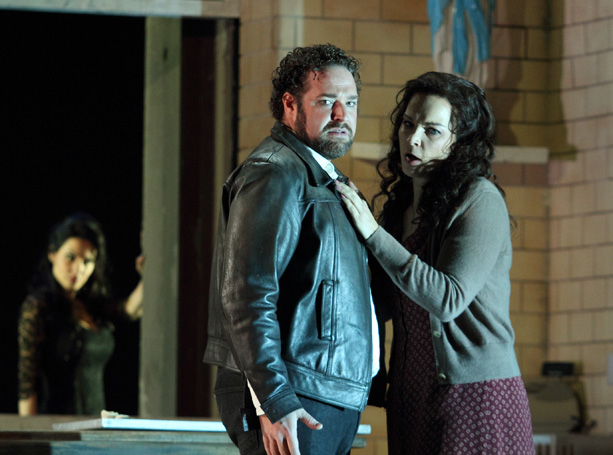
© Catherine Ashmore
8. Cavalleria rusticana Pagliacci (Royal Opera House)
It’s been a fine year for revivals at the Royal Opera, and this one – starrily cast and still running at Covent Garden – is the best of a very good lot. Madama Butterfly, L’elisir d’amore, The Magic Flute, Turandot, Les Vêpres siciliennes and Lucia di Lammermoor all scrubbed up well, but Cav & Pag boasted fine turns by Elīna Garanča and Simon Keenlyside plus a pair of memorable performances by the great American tenor Bryan Hymel. It’s just a shame that few if any of the company’s new productions this year were as strong.
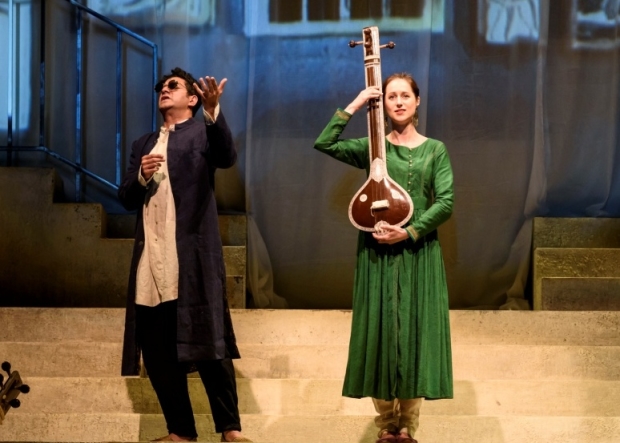
© Bill Cooper
7. Sukanya (The Curve and tour)
The year’s most unexpected delight was the late Ravi Shankhar’s entertaining, cross-cultural opera based on an episode from the Mahabharata. Notionally semi-staged around a spotlit London Philharmonic Orchestra and some Indian instrumental virtuosi, it was in fact a fully realised theatrical experience, awash with colour thanks to wraparound projections by 59 Productions and with radiant performances from a cast headed by Susannah Hurrell. The whole thing was expertly staged by the über-talented Suba Das. Quick, someone give him a grand opera to play with.
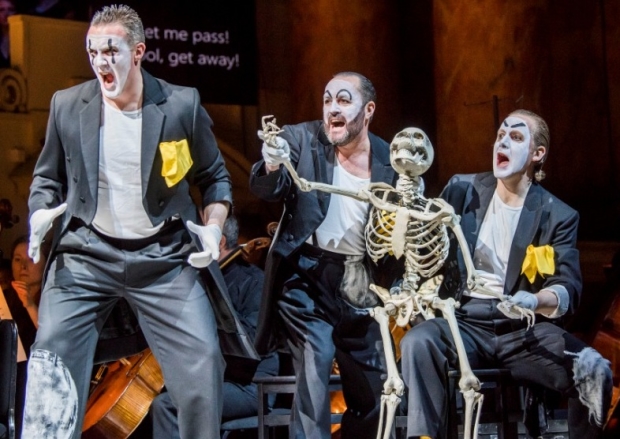
©Tristram Kenton
6. Turandot (Leeds Town Hall and tour)
Also billed as semi-staged, Opera North’s biggie this year was Puccini’s last opera in a dynamic visual realisation by Annabel Arden that used minimal yet clever settings by Joanna Parker to add scale and substance. Designed (like last year’s Ring cycle) to visit concert halls rather than opera houses, it was a riveting musical onslaught, with fine central performances by Orla Boylan and Rafael Rojas and exhilarating conducting by Richard Armstrong in the hard-driven, take-no-prisoners manner he favours today. With the wrong opera Sir Richard’s heartless beat can be a problem, but in Turandot it was explosive.
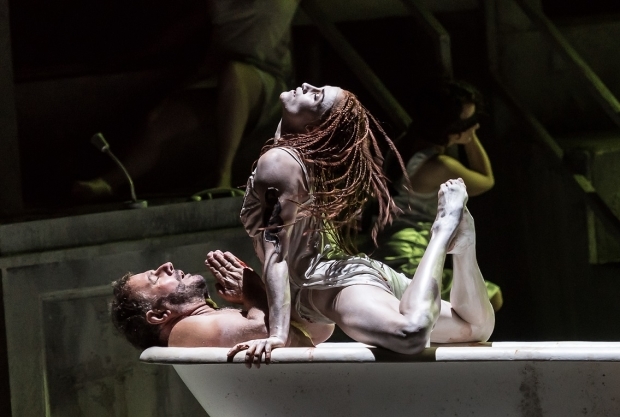
© Clive Barda
5. Khovanshchina (Wales Millennium Centre and tour)
Aside from an economical staging of Frank Martin’s Le Vin herbé, Welsh National Opera subsisted entirely on revivals in 2017. Yet the company turned this to its advantage in an Autumn season that saw Natalya Romaniw tour her magnificent Tatyana in Eugene Onegin and two of director David Pountney‘s greatest achievements return to astound new audiences. Ten years on from its premiere, his production of Mussorgsky’s unwieldy political opera had the confidence of a director in his prime, and it was sensationally conducted by Tomáš Hanus.
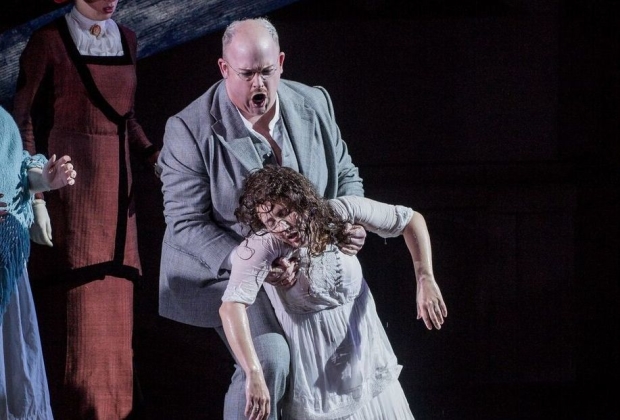
© Robert Workman
4. Kat’a Kabanova (Opera Holland Park)
There are three Janáček operas in my top four. No apology needed for that; Moravia’s finest was the most theatrical composer of them all and his operas are a gift to a good director. Olivia Fuchs’s restaging of her 2009 Kat’a Kabanova for OHP showcased her talents as a director of character and a painter of relationships at their most intimate. Julia Sporsén was heartbreaking in the title role, while tenors Peter Hoare and Nicky Spence completed a summer Janáček double hard on the heels of Grange Park Opera’s Jenůfa. Sian Edwards and the City of London Sinfonia delivered a tight, right reading of the score.
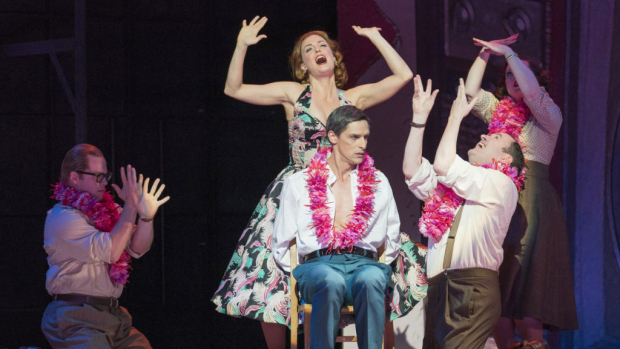
© Alastair Muir
3. Osud / L’Enfant et les sortilèges / Trouble in Tahiti (Grand Theatre, Leeds and tour)
Opera North’s 'Little Greats' season of six one-act operas yielded no fewer than three five-star shows – an impressive strike rate. Janáček’s Osud ('Fate'), in another Annabel Arden production, is thematically strange yet somehow typical of its composer and provided tenor John Graham-Hall with a gem of a role. The Canadian mezzo Wallis Giunta, meanwhile, did the double as a brattish child in Ravel’s cautionary opera (Arden #3) and as a desperate housewife in Leonard Bernstein’s startling Trouble in Tahiti, sharply directed by Matthew Eberhardt and stylishly conducted by Tobias Ringborg.
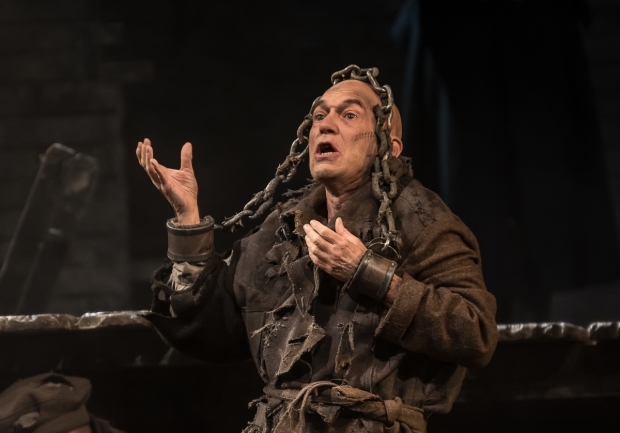
© Clive Barda
2. From the House of the Dead (Wales Millennium Centre and tour)
My top two choices sprint clear of the pack and either could have claimed first place. Only the fact that David Pountney’s devastating WNO account of Janáček’s final opera is 35 years old prevents it from sharing the top spot; yet it remains a visceral evening of lyric theatre and has not aged a day. The late Maria Björnson’s sets and Chris Ellis’s lighting provided a powerfully grim environment within which Alan Oke, Adrian Thompson, Simon Bailey et al. evoked the mind-crushing harshness of Dostoyevsky’s labour camp. And it was superbly conducted by Tomáš Hanus, a man with Janáček in his bones.
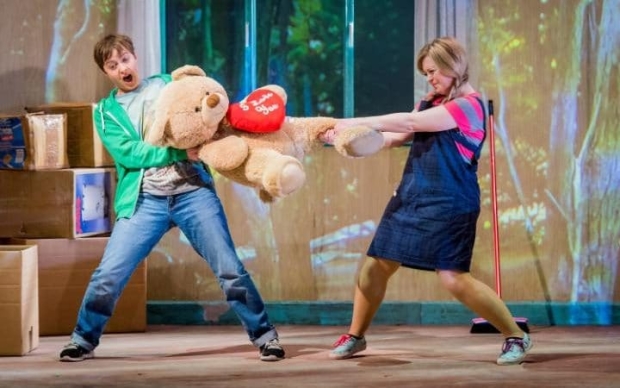
© Robert Workman
1. Hansel and Gretel (Grand Theatre, Leeds and tour)
Opera North’s spellbinding reinvention of Humperdinck’s fairytale opera held more secrets and surprises within designer Giles Cadle's unpromising high-rise tenement than we could reasonably expect. Edward Dick tapped into the very essence of childhood and parenthood in his production, and he employed bravura video technology by Ian William Galloway to forge its wonders. Katie Bray and Fflur Wyn were knockout as the children; Susan Bullock in full-on slattern mode was a perfect Witch as well as a far-from-perfect mother. Christoph Altstaedt was the sensitive conductor. If you’ve ever had kids and loved them you’ll have cried your eyes out during this visionary production. Well I did.







![Review: <em>Little Greats [Part 1]</em> (Leeds Grand Theatre and tour)](https://www.whatsonstage.com/wp-content/uploads/sites/3/2023/06/119549.jpg?w=100)










